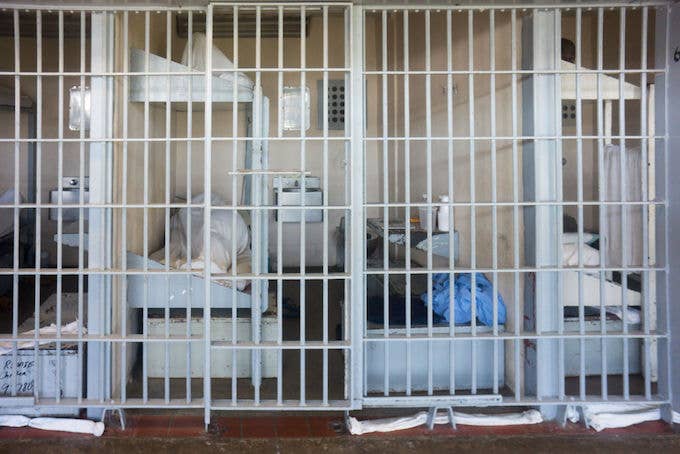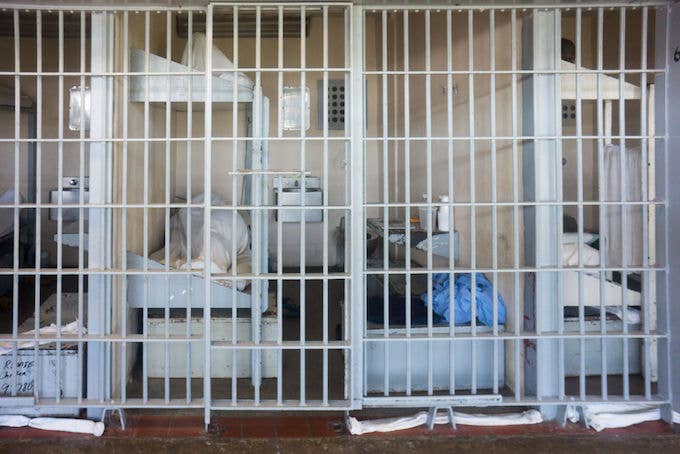
Kansas officials announced on Tuesday that Richard Anthony Jones would be given a $1.1 million settlement after a new mistaken-conviction law helped resolve a lawsuit he brought on. Jones initiated the litigation after he was locked up 17 years for a crime that was committed by a lookalike.
In tandem with the settlement, Kansas's attorney general Derek Schmidt released a statement that essentially read 'oops, our bad' on behalf of the state. "We are committed to faithfully administering the new mistaken-conviction statute the legislature enacted," Schmidt said. "In this case, it was possible on the existing record to resolve all issues quickly, satisfy all of the statute's requirements, and agree to this outcome so Mr. Jones can receive the benefits to which he is entitled by law because he was mistakenly convicted."
Jones had been granted his freedom last year, but in August he filed a petition that asked for the $1.1 million settlement in addition to an official proclamation that he was innocent of an aggravated robbery charge of which he was convicted. The crime occurred in a Walmart parking lot back in 1999. Jones had claimed that he was at his girlfriend's birthday party on the day of the crime, and several people in attendance corroborated that alibi. He said the day after was spent cleaning up after the party and watching movies. Despite that, however, he was convicted because he looked like Ricky Amos, the suspect who the state now believes was guilty.
CNN reports that the events that led to Jones' lengthy prison stay went like this: A man tried to snatch a woman's purse in a Walmart parking lot. He failed but managed to get her cell phone. The woman also fell and scraped her knees, which led to the charges being upgraded to aggravated robbery. Witnesses said the perpetrator was a "light-skinned Hispanic or African-American man" named Ricky, and that the suspect had "long hair pulled back." Another witness jotted down the thief's license plate, and detectives tracked down the driver of that car. The driver then went to the precinct and went through booking photos of people named either "Rick" or "Ricky" that matched the description given by witnesses.
Jones ended up being the unfortunate person ID'd by the driver, and then ID'd again by the victim both at a preliminary hearing, and later at trial. The Kansas jury found Jones' alibi above to be unconvincing, and he was sentenced to 19 years in prison. His appeal attempt was unsuccessful.
As for how the doppelganger was tracked down, that legwork was done in part by the University of Kansas' Project for Innocence. They found Rickey Lee Amos, who did look a bit like Jones, and who lived at the address that was linked to the theft. Eyewitnesses who were then presented with this info were unable to state with certainty that Jones was the attempted purse snatcher. Jones' conviction was then tossed out by a judge, and he was released on June 8, 2017. Additionally, Amos is also set to get away with it since the statute of limitations have expired.
Asked if Jones would have any bad blood towards Amos, the Innocence Project's lead attorney (Alice Craig) stated that there was none upon the innocent man's release. However, she did say he was probably "somewhat disappointed" with Amos letting him take the fall.
"I don't think so, because it's not Ricky's fault that this happened, but ultimately he was the one we believe who was responsible for the crime," she said. "Ricky has never admitted to the crime and I think (Jones) ... was somewhat disappointed that he didn't admit to (it)."

